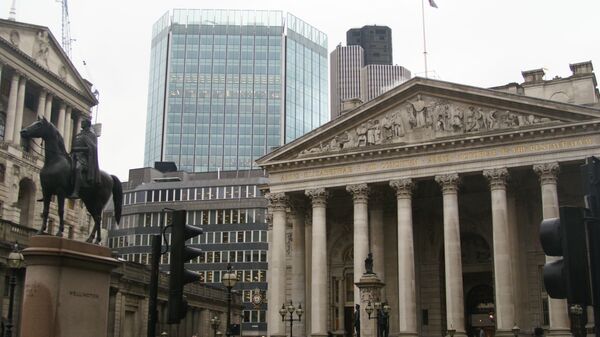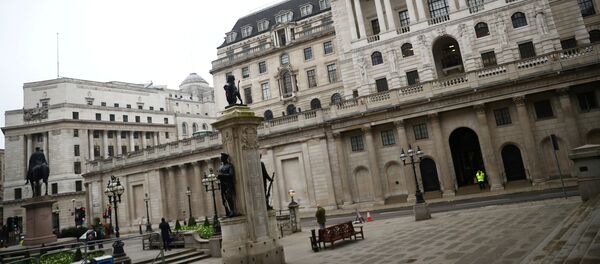A week after the Bank of England pledged to introduce a further hundred billion pounds into the UK's struggling economy, the Office of National Statistics has released data from last month confirming that the number of employees on British payrolls has fallen by almost 800,000 people since March. The new report does not take into account underemployed people, those working in precarious jobs, or zero hour contracts.
Ghulam Sorwar, Professor of Finance at Keele University, England, has elaborated on how so-called quantitative easing could impact economic growth in the country.
SPUTNIK: When the Bank of England announces that it will pump 100 billion pounds into the economy, what does that really mean?
Sorwar: Well, essentially what happens is the Bank of England goes out into the bond market and they buy the bonds from the investors, and in return, they provide cash to the investors. So in essence, what's happening is the Bank of England just adding more money to the economy.
SPUTNIK: So how does this process of adding money into the economy affect the average person?
Sorwar: At this moment in time, it doesn't really have that much of an impact directly on the average person. Now, what that means is the following: if you have a mortgage at the moment, it means that interest rates are likely to remain lower for longer. So in a sense, you may benefit from that. The other idea is that if it works, and it works well, it will allow companies to actually invest money into the real economy, so that new jobs are created and people who are already in employment benefit further in theory. Whether it happens or not, to the level that the government is expecting, remains to be seen.
SPUTNIK: There's been an argument for the last few months regarding quantitative easing versus negative interest rates. Do you think we could be in a situation where we see negative interest rates introduced here in the UK?
Sorwar: That is definitely a possibility. We've had the announcement of a vaccine with Pfizer. In realistic terms, we will probably have a vaccine next year for mass use. Now, the question is: does the government need to go in further and lower the interest rates? That remains to be seen. So having a negative interest rate is a very, very unusual situation, but it's a possibility.
SPUTNIK: We heard reports over the summer about the Bank of England expecting a "V shaped" recovery, but as we entered the second lockdown that seems less and less realistic. What do you think about a quick sharp snap back to economic stability?
Sorwar: I doubt it, at least for the next few months. The problem is given that we are now in the second wave, even if the vaccine was approved. By the time it's administered, at the level needed to make an impact on the economy, we will be well into next year. So I don't really anticipate any "V shaped" recovery. Until at least April or May of next year.



